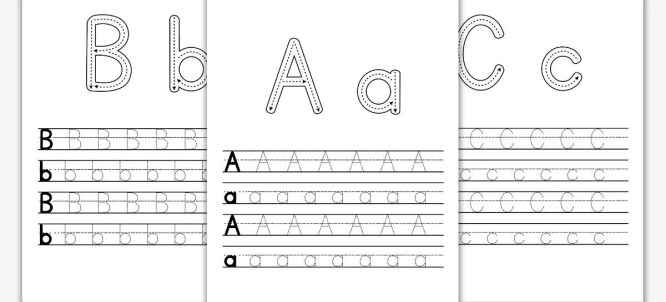by PushtoLearn
Lowercase and Uppercase Letters: Definition and Meaning
Table of Contents
- What Are Lowercase and Uppercase Letters?
- Rules for Using Uppercase Letters
- Common Errors
- Everyday Use of Lowercase and Uppercase Letters
- The Historical Evolution of Uppercase and Lowercase Letters
- The Role of Capitalization in Reading
- Why Are They Called Uppercase and Lowercase?
- Linguistic Quirks Around the World
- Conclusion
- FAQ
Ever wondered why we have uppercase and lowercase letters? Is one case not sufficient? In this article, we'll explore the fascinating history and practical reasons behind the use of upper and lower cases in writing. Let's delve into the world of typography, linguistics, and a bit of humor to understand why our writing system is designed the way it is.
What Are Lowercase and Uppercase Letters?
Definition
⭐ Lowercase Letters: These are the smaller, more common versions of the letters in the English alphabet. Examples include: a, b, c, d, etc.
⭐ Uppercase Letters (Capital Letters): These are the larger versions of the letters. They are often used at the start of sentences, names, or titles. Examples include: A, B, C, D, etc.
Why Do We Use Them?
Clarity in Writing: Using both lowercase and uppercase letters helps readers understand the structure of sentences and identify important information.
Grammar Rules: Uppercase letters follow specific grammar rules, such as starting a sentence, writing proper nouns (names of people, places, etc.), and abbreviations.
Rules for Using Uppercase Letters
Here are the basic rules for when to use uppercase letters:
Start of a Sentence: Always capitalize the first letter of the first word in a sentence.
➡️ Example: "The cat is sleeping."
Proper Nouns: Capitalize names of people, places, specific events, days, months, and organizations.
➡️ Examples: "John," "Paris," "Christmas," "Monday," "October," "United Nations."
Titles: Capitalize the first and important words in book titles, movies, articles, and other works.
➡️ Example: "Harry Potter and the Sorcerer's Stone."
Pronoun 'I': Always capitalize the pronoun "I."
➡️ Example: "I am learning English."
Acronyms and Initials: Capitalize all letters in acronyms or initials.
➡️ Examples: "NASA," "UN," "USA."

Common Errors
❌ Overusing Uppercase Letters: Avoid writing full sentences in uppercase unless it is for emphasis or specific formats like titles. It can look like shouting in text.
❌ Forgetting Proper Nouns: A common mistake is not capitalizing names or specific places. Always check if a word is a proper noun and needs a capital letter.
❌ Not Capitalizing Titles Correctly: Only the main words in titles should be capitalized. Words like "and," "of," "in," etc., are usually not capitalized unless they are the first word.
Everyday Use of Lowercase and Uppercase Letters
Emails and Texts: Make sure to use uppercase letters at the start of sentences and for proper nouns, even in informal writing.
Formal Writing: In essays, reports, and formal documents, correct use of uppercase and lowercase letters is crucial for readability and professionalism.
The Historical Evolution of Uppercase and Lowercase Letters
In the beginning, ancient Greek and Latin alphabets were written entirely in uppercase letters. This practice was practical for inscriptions on stone and monumental architecture due to the clear and uniform appearance of the letters.
Scribes and the Birth of Lowercase
As scribes began writing on papyrus and parchment, they developed quicker, more fluid writing styles. This led to the creation of lowercase letters, which were essentially simplified versions of their uppercase counterparts. As one Reddit commenter, TomakaTom, pointed out:
"When people wrote quickly using a pen, they would accidentally soften and round certain letters, forming the lowercase versions."
These "sloppy" letters became more common in everyday writing. Over time, they were no longer seen as informal but became the standard form for most texts.
The Role of Capitalization in Reading
Capital letters began to serve a practical purpose: improving readability. They were used at the beginnings of sentences and for proper nouns to help readers easily identify important parts of the text. Another Reddit user, llyean, added an interesting tidbit:
"Capital letters at the start of sentences helped the eye to distinguish breaks in the text and improved the flow of reading."
This practice made long passages easier on the eyes and allowed for quicker comprehension—a benefit we're still reaping today.
Why Are They Called Uppercase and Lowercase?
The terms "uppercase" and "lowercase" come from the early days of the printing press. Printers kept the most frequently used letters—the lowercase—in the more accessible lower drawers, while the less frequently used capital letters were stored in the upper drawers. As llyean from Reddit explained:
"Eventually we stopped calling them minuscule and majuscule, just saying lowercase and uppercase."
Linguistic Quirks Around the World
The discussion also highlighted how various languages handle capitalization differently. For instance, in German, all nouns are capitalized, adding another layer of grammatical nuance. User pixelanian shared:
"German also capitalizes the first letter of every noun. It's pretty interesting, and definitely something I didn't know before learning German."
In contrast, some languages don't use uppercase letters at all, and others have entirely different writing systems that serve similar purposes without capitalization.
Conclusion
While it's true that not all languages use uppercase and lowercase letters, in languages like English, they play a significant role in clarifying meaning and enhancing readability. The evolution of cases from ancient scripts to modern usage shows a blend of practicality and convention.
So, do we need uppercase and lowercase letters? Maybe not in the strictest sense, but they've become an integral part of how we communicate in written form. They add clarity, prevent misunderstandings, and, as we've seen, can even provide a good laugh
FAQ
What is the main difference between uppercase and lowercase letters?
Uppercase letters are larger and used at the start of sentences, for proper nouns, and in acronyms. Lowercase letters are smaller and used in the rest of the text.
When should I use uppercase letters?
Use uppercase letters at the beginning of sentences, for names, days, months, titles, and acronyms.
Can I use uppercase letters in the middle of a word?
No, uppercase letters are typically used only at the beginning of words unless it’s part of a proper name like "iPhone."
Why is it important to use lowercase and uppercase correctly?
Using them correctly improves readability and makes your writing look professional. It also follows grammar rules, which are important in both formal and informal writing.
Is it okay to write everything in uppercase letters?
Writing everything in uppercase can look like shouting and is often considered rude, especially in emails or messages. It’s best to follow normal capitalization rules.
Why were lowercase letters developed?
Lowercase letters were developed as a quicker, more fluid way of writing. Scribes writing on papyrus and parchment simplified uppercase letters to write faster, leading to the creation of lowercase letters.
What is the purpose of uppercase letters in modern writing?
Uppercase letters serve several purposes, including indicating the beginning of sentences, proper nouns, and acronyms. They help improve readability and provide context within the text.
Do all languages use uppercase and lowercase letters?
No, not all languages use uppercase and lowercase letters. Some languages, like Arabic and Hebrew, have different scripts or forms of letters but don't use capitalization in the same way English does.
Where did the terms "uppercase" and "lowercase" come from?
The terms originated from the early printing press era. Printers stored the more frequently used small letters in lower cases (drawers) and the capital letters in upper cases, leading to the terms "uppercase" and "lowercase."
How does capitalization affect meaning in a sentence?
Capitalization can change the meaning of a sentence by indicating proper nouns or the start of a new sentence. Incorrect capitalization can lead to misunderstandings, as seen in the humorous example about "helping your Uncle Jack off a horse."
Are uppercase and lowercase letters necessary?
While not strictly necessary, uppercase and lowercase letters enhance readability and clarity in written language. They help convey meaning, indicate sentence structure, and prevent misinterpretation.
How do other languages handle capitalization?
Different languages have various rules for capitalization. For example, in German, all nouns are capitalized. Some languages do not use capitalization at all, relying on other grammatical structures to convey meaning.
Can writing in all uppercase or lowercase affect readability?
Yes, writing in all uppercase or all lowercase can affect readability. Uppercase letters are harder to read in long passages, and the lack of capitalization can make it difficult to distinguish sentence beginnings and proper nouns.
Is there a movement to simplify English by eliminating uppercase letters?
There is no significant movement to eliminate uppercase letters in English. While some minimalist writing styles or digital communications may use all lowercase, standard English still relies on capitalization for clarity.
How did the printing press influence capitalization?
The printing press standardized the use of uppercase and lowercase letters. Printers organized type into upper and lower cases (drawers), which influenced terminology and solidified the practice of using both cases in printed materials.

